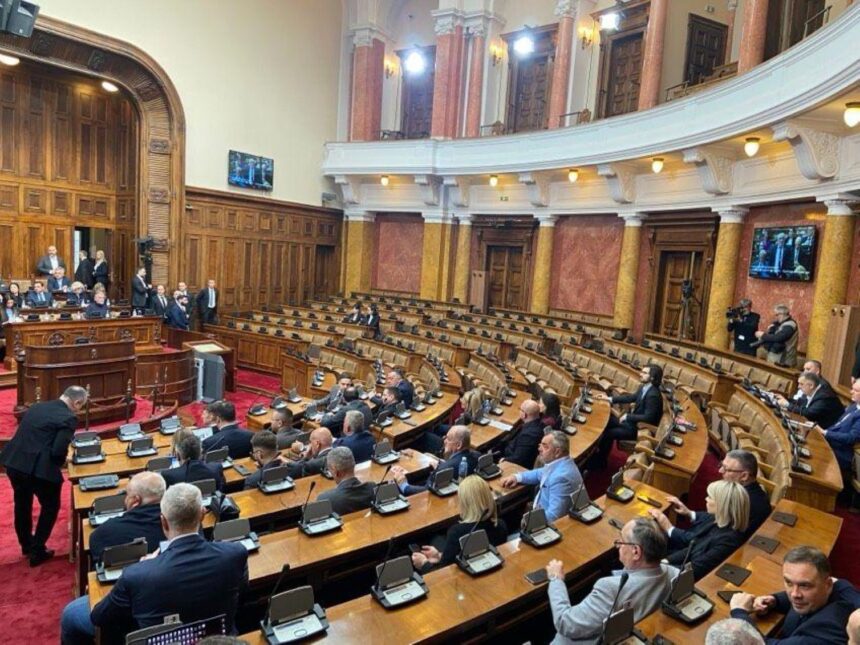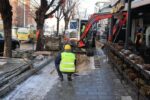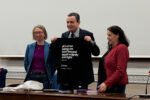The Serbian Parliament session concluded without opposition MPs amid tensions, violent incidents, and EU concerns over the disruption of democratic debate.
The latest session of the Serbian Parliament ended without the participation of opposition MPs, following a chaotic opening marked by violence, smoke bombs, and a bomb threat. Lawmakers will resume discussions on amendments and proposed legislation on March 6.
The spring parliamentary session, which began on March 4, saw heightened security and the absence of most opposition members. Opposition MPs stated they would not return to the chamber after police searches of parliamentary offices and a false bomb threat. They had previously signaled their intent to boycott the session in protest.
The European Union condemned the violence, stressing that the parliament should remain a space for democratic debate. Meanwhile, Speaker Ana Brnabić declared that institutions “will not back down in the face of lawlessness and terrorism.”
Among the key agenda items is a proposal to amend the Higher Education Law, fulfilling one of four demands from student protesters who have been blocking universities and demonstrating for over three months. However, the resignation of Prime Minister Miloš Vučević, who stepped down after a violent attack on students in Novi Sad, was not included in the discussion, despite earlier announcements by Brnabić.
As the parliamentary session took place, student protesters gathered outside the building, with some demonstrators later throwing eggs at the entrance. Their demands include accountability for the Novi Sad tragedy that claimed 15 lives and sparked widespread protests across Serbia.
Serbian President Aleksandar Vučić has mentioned the possibility of forming a new government or holding snap elections, adding further uncertainty to the political landscape.
In response to the unrest, Serbia’s Criminal Investigation Police conducted an inspection to determine how pyrotechnic devices were smuggled into the assembly. The Higher Public Prosecutor’s Office in Belgrade also condemned the incidents, emphasizing that parliamentary immunity does not shield lawmakers from prosecution for criminal acts.
Tonino Picula, the European Parliament’s special rapporteur on Serbia, expressed deep concern over the crisis, warning that “political tensions have affected the parliament and that physical threats to MPs are unacceptable.” European Commissioner for Enlargement Marta Kos echoed these concerns, urging Serbian authorities to uphold democratic standards.







